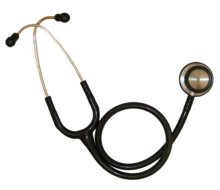CAUTION: EXCESSIVE COFFEE, MALARIA DRUGS LOWER FERTILITY IN MEN —Expert
Against the backdrop of increasing male infertility in Nigeria, a physiologist, Professor Yinusa Raji, has warned that excessive consumption of coffee, as well as abuse of antibiotics and malaria drug, can lower fertility in men.
Raji, Head of Physiology Department, University of Ibadan, made this disclosure at the 444th inaugural lecture of the University of Ibadan, entitled “Benevolence or Malevolence: The Curious Wonder of Natural Agents on Reproductive Physiology” at the university.
He stated that caffeine reduced sperm viability and volume in experimental animal models, adding that studies have also shown that testosterone levels increased at high doses of caffeine.
The don stated, “taking together, our results suggests that caffeine treatment for four weeks could impair body weights, reproductive organs weights, sperm characteristics, follicle stimulating hormone (FSH), luteinizing hormone (LH) levels, in addition to testicular cytoarchitecture. These effects, however, appear to be reversible after caffeine withdrawal.”
Professor Raji, noting that excessive consumption of stimulants, like the coffee, can also affect the fertility of an unborn baby boy, said even in pregnancy, caffeine can reduce serum testosterone level and decrease the weight of testes in male offspring.
According to him, “maternal caffeine exposure during different gestational periods adversely affected birth weight and some reproductive indices in male offspring of Wistar rats.”
The expert, who said there is an interplay among hormones, natural products and drugs on male reproductive functions, declared that many antibiotic and malaria drugs, including herbs and nicotine, also tells on male fertility level.
He stated: “We reported that ampicillin, cloxacillin, tetracycline, chloroquine, mefloquine, sulphadoxine-pyrimethamine, proguanil and artesunate caused significant inhibition of sperm functions in both in vivo and in vitro models.
The abuse and misuse of these drugs could, therefore, be a major contributory factor, to the decline in sperm quality and quantity and this fertility potential in man over the last century. We, therefore, caution that people should avoid the use of these drugs without doctor’s prescription.”
Beyond coffee, he added that common herbs such as Quassia amara (amargo or Bitterwood); neem tree (Dongoyaro); Alstonia boonie (stool wood or ahun); Morinda lucida (oruwo); Ricinus communis (Ilarun) Carpolobia lutea (Osunsun, Aleko or sexual invigorator); Sphenocentrum jollyanum (Akerejupon) and Tridax procumbeans (sabarumo), can also affect the male reproductive functioning.
The expert stated: “it is curious to wonder why a plant like Quassia amara with many benevolent activities would produce such malevolent activities on reproductive physiology (makeup) in the male.
In addition to significant reduction in sperm counts, motility and morphologically viable sperms, some of the abnormalities like coiled tail, lasso-like sperms and fusion of tails that were observed, which suggest a direct toxic effect of Quassia amara at the level of the epididymis.”
While the infertility effect of these plants makes them potential candidates for producing male contraceptive agents, Professor Raji said such plants as Carpolobia lutea, Sphenocentrum ollyanum and Tridax procumbeans are medicinal plants beneficial to men who are suffering from poor libido or erectile dysfunction.
“In fact, Sphenocentrum jollyanum root extract could perform a dual role in male reproduction; improves fertility and ameliorates erectile dysfunction. Also, Tridax procumbeans leaf extract demonstrated a potential in correcting erectile dysfunction in hypertension.”
While stressful stimuli such as sleep deprivation would have different effects on reproduction functions of male offspring, the don said that intake of coconut water and watermelon is protective against some negative effect of high-fat diet in pregnancy on unborn babies.
Given that medicinal plant could also have side effects in the body, he said the benevolence of these medicinal plants can only be attained and maximised if traditional medicine is standardised and appropriately integrated with orthodox medicine.
Professor Raji suggested that researchers be given a specific mandate to solve specific problems such as cancers, diabetes, hypertension and infertility even as he called for adequate equipment and funding for research.
“The grossly inadequate funding of the education sector in Nigeria is a cause of worry,” he declared.
@ Nigerian Tribune

